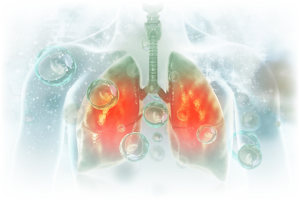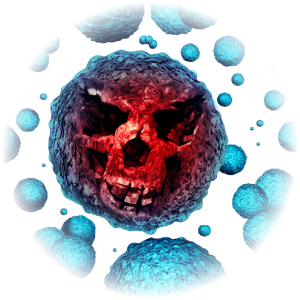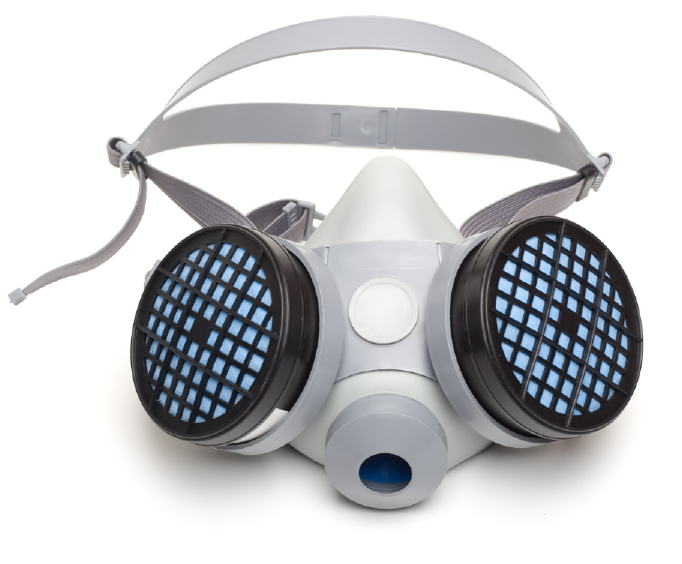4 Things to Consider About Your Disinfectant Spray
(other than whether it kills COVID)
While the focus remains on keeping our homes and businesses COVID-free, there are other important considerations when using chemical disinfectants. Many disinfectants include harsh and dangerous chemicals such as sodium hypochlorite, quaternary ammonium, chlorine dioxide, peracetic acid, and phenols. These chemical disinfectant sprays can cause long-term issues for users. In addition, they can fuel the creation of “superbugs”, or drug resistant pathogens (germs).
4 Things to Know About Using These Chemicals
1. You could be putting your health at risk.
Your health, and the health of custodial staff and workers can be put into danger with repeated exposure to disinfectants. For example, quaternary ammonium compounds can cause irritation to mucus membranes such as the respiratory tract (throat, lungs, nose, etc.) and the eyes.
 Other health dangers of common disinfectants include:
Other health dangers of common disinfectants include:
- Trigger for asthma
- Cause of occupational asthma
- Contact dermatitis
- Poor indoor air quality
2. They can lead to sticky residue.
Another dangerous effect of most commonly used disinfectant sprays are the residues they cause. On a surface, a sticky biofilm can be left behind by these products. This causes germs, dust, and debris to become fixed in that location. This sticky residue can lead to a greater presence of germs than before use, which is hardly the goal. Residues might even release germs back into the air (pose a risk of aerosolization) with later cleaning.
3. You could be helping something worse grow–SUPERBUGS
 By far, the most dangerous effect of the overuse of chemical disinfectants is unintentionally creating “superbugs”. Superbugs are defined as multi-drug resistant organisms. When exposed to disinfectants over time, pathogens develop the ability to push toxins (like disinfectants or antibiotics) out of the cells. This response makes them resistant to specific types of disinfectants, and this resistance can be passed on to future generations of that pathogen.
By far, the most dangerous effect of the overuse of chemical disinfectants is unintentionally creating “superbugs”. Superbugs are defined as multi-drug resistant organisms. When exposed to disinfectants over time, pathogens develop the ability to push toxins (like disinfectants or antibiotics) out of the cells. This response makes them resistant to specific types of disinfectants, and this resistance can be passed on to future generations of that pathogen.
4. They could be bad for our environment
Some chemical disinfectants are classified as hazardous or create pollution during manufacturing. Fortunately, disinfection science has advanced to provide highly effective choices in environmentally friendly forms.
3 Ways You Can Reduce the Risks
1. Always read the label
Follow the instructions for things such as…
- Dilution: Mixture ratios are determined for optimal efficacy. More is NOT always better. Too much disinfectant can reduce a solution’s ability to kill germs, cause extra grimy residues, or damage surfaces.
- Contact Time: How long should the disinfectant stay wet before you wipe it up?
- Removal: Does the label say you should rinse the surface after use? Many disinfectant sprays do.
3. Use protective gear
 Misuse is often worst when we are familiar with a product. Remember, even a disinfectant spray that seems harmless can have long-term health effects. Consider whether gloves or a respirator are needed and be sure to wash your hands after use.
Misuse is often worst when we are familiar with a product. Remember, even a disinfectant spray that seems harmless can have long-term health effects. Consider whether gloves or a respirator are needed and be sure to wash your hands after use.
4. Consult the experts
Unfortunately, at a time when it is most important to make smart choices about what to use, the market is also being flooded with options. This can make it tough on the average consumer to know what to do. Take a little time to consult with disinfection experts for helpful guidance to steer you on the right path.
Overall, it is important to understand the consequences of overusing dangerous chemical disinfectants. The long-term damage to your health can be astronomical. Blistering, burning, coughing, and irritation are more than temporary nuisances, they are warning signs of possibly greater health concerns in the future. Proper equipment should always be used when exposed to harmful chemicals to ensure the utmost safety. The constant cycle of overusing antimicrobials, disinfectants, and antibiotics has future implications we might not be prepared for. Knowing the risks of what you are using, and how to protect yourself, are an important part of having a healthier environment.
CURIS System is dedicated to helping others create healthy spaces by providing the most efficacious germ-killing disinfectant solution with no harmful residues. If you have questions, please contact us at 800-928-8708 or complete a Contact Form and we will contact you.